One More River

Brief Synopsis
Cast & Crew
James Whale
Diana Wynyard
Colin Clive
Mrs. Patrick Campbell
Frank Lawton
Jane Wyatt
Film Details
Technical Specs

Synopsis
Lady Clare Corven returns to her family from Ceylon, where her husband Gerald brutalized her. On the return cruise to England, she meets James "Tony" Bernard Croom, who falls in love with her. In England, Clare's family receives her with warmth, and with the assistance of her sister Dinny, she works as a secretary for David Dornford, who has just won a seat in Parliament. Clare continues her platonic friendship with Tony, and refuses to return to Ceylon with her husband, who seeks her out in England. Unknown to Clare and Tony, Gerald has them followed by a detective. One night when the lights fail in the car, Clare and Tony park in the woods and innocently spend the night in the vehicle. This apparently damning evidence causes Gerald to sue Clare and co-respondent Tony for divorce and damages. At the court trial, the archaic system of divorce proceedings is evident, and Tony and Clare are found guilty based on circumstantial evidence. In spite of the outcome of the trial, Clare feels freed by divorce and, feeling that she is indebted to Tony, invites him to dinner. Tony is offended by her sense of gratitude and leaves. He returns the next morning, however, and after Clare professes her true love for him, they proceed uninhibited with their romance.

Director
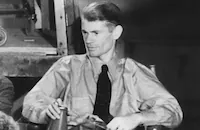
James Whale
Cast

Diana Wynyard

Colin Clive
Mrs. Patrick Campbell

Frank Lawton

Jane Wyatt

Lionel Atwill
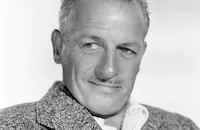
Reginald Denny

C. Aubrey Smith
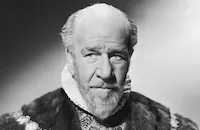
Henry Stephenson
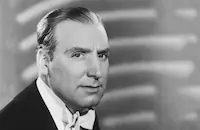
Alan Mowbray

Gilbert Emery
Kathleen Howard

E. E. Clive
Robert Greig
Gunnis Davis
Tempe Piggott
Snub Pollard

Billy Bevan
Reginald Sheffield
Doris Llewelyn
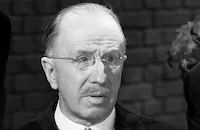
Arthur Hoyt
Helena Grant
Terry Spencer
David Dunbar
Bobby Hale
Joseph North
Mrs. Stewart
John Power
Alphonse Martell
Gino Corrado
John C. Fowler
Montague Shaw
Harrington Reynolds
Richard Lancaster
Harry Strang
Connie Leon Ullman
Lillian Elliott
George Ghermanoff

Frank Puglia
Max Barwyn
Alfred P. James
Yorke Sherwood
Alfred Cross
Tom Ricketts
Hayden Stevenson
Stuart Holmes
Barlowe Borland
Luke Cosgrove
Peter Shaw
Stuart Hall
John Underhill
George Atkinson
Arnaud De Bordes
Douglas Gordon
Captain Francis
Colin Kenny
William K. Williamson
Harry Northrup
Dick Rush
Everett Sullivan
Harold Nelson
Ralph Hornbrook
Robert Bolder
Scott Mattraw
William Welsh
Charles W. Hertzinger
Elwyn Eaton
Edward Cecil
Skipper Zelliff
Kate Kent
Renee Shearing
Violet Seaton
Mary Gordon
Grace Cunard
Harry Von Meter
Crew
Margaret Donovan
Bill Ely
John P. Fulton
John Galsworthy
Charles D. Hall
W. Franke Harling
William Hurlbut
Alan Jones
Ted Kent
Gilbert Kurland
Carl Laemmle Jr.
Carl Laemmle
Carl Laemmle
Harry Mancke
Helen Mccaffrey
Joseph A. Mcdonough
John J. Mescall
M. F. Murphy
Maurice Pivar
R. C. Sherriff
Katherine Stanley
James Whale

Videos
Movie Clip


Film Details
Technical Specs

Articles
One More River
To work on the adaptation, Whale turned to R. C. Sherriff, author of Journey's End, which Whale had filmed in 1930. (Sherriff had also written the script for Whale's The Invisible Man [1933] and contributed additional dialogue to his The Old Dark House [1932].) The major change Sherriff and Whale made to Galsworthy's novel was to reduce its heroine, Dinny Charwell, to a minor figure, while building up the role of her sister, Lady Clare Corven. This was done, the New York Times reported, because Dinny's story, which was largely interior, "had no pictorial value," whereas Galsworthy's account of how Clare leaves her brutal husband, Sir Gerald, and allows herself to be pursued by a new admirer, Tony Croom, "was full of dramatic action." For what thus became the lead role, Universal negotiated with MGM to borrow the well-known British actress Diana Wynyard.
Before the start of production, Whale took a holiday in England. The opportunity to immerse himself again in his native atmosphere probably helped One More River. The film was deliberately designed for the important British market, according to the New York Times, which predicted: "Because of the star-director-writer combination, it will draw the 'carriage trade' in this country, but Universal says that the real profit will come from England." Therefore authenticity was crucial, and Whale delivered it.
For his cast, Whale drew heavily on Hollywood's growing population of British thespians. Colin Clive, a Whale favorite, played Sir Gerald, and Frank Lawton played Tony. For the comic role of Lady Mont, Clare and Dinny's aunt, Whale cast the distinguished Mrs. Patrick Campbell (also on loan from MGM). The divorce trial that takes up much of the last third of the film gave good opportunities to Lionel Atwill as the husband's barrister, Alan Mowbray as the wife's barrister, and Gilbert Emery as the judge. C. Aubrey Smith, Henry Stephenson, Reginald Denny, and E. E. Clive rounded out the cast in splendid style. The only non-Britisher given an important part was New Jersey-born Jane Wyatt, sporting a plausible accent in her film debut as Dinny. Over the objections of Universal's cost-conscious production head, Whale insisted on maintaining the tradition of twice-daily tea breaks (often attended by Boris Karloff and other visitors), heightening the British-club-like exclusivity of the set.
Filmed from May to July 1934, One More River was one of the first films to be subjected to the stringent censorship of the Production Code Administration, instituted that year. The PCA rejected Sherriff's initial script because of the portrayal of Sir Gerald as a sadist. "We can see no objection," PCA head Joseph I. Breen informed the filmmakers, "to your developing the character of Corven as that of a brutal man who has beaten his wife and thus compelled her to leave him, but we cannot allow any suggestion, directly or indirectly, referring to sadism." With the aid of writer William Hurlbut, Whale revised the script to try to meet Breen's objections, but when the edited film was submitted to the PCA in July, the censors still complained that the allusions to sadism were too unmistakable. The film was only approved later in the month "after interminable hours of discussion and some retakes, to say nothing of the dubbing in of some new lines," said Breen. Still, in the finished film, more than a hint of sadism lingers in Colin Clive's characterization of Sir Gerald, especially since the film manages so conspicuously to be discreet about both the past incident of brutality that triggered Clare's departure and what takes place during the couple's night-time reunion in Clare's apartment, a meeting Whale largely conceals from the viewer.
One More River was released in August to great critical enthusiasm, which was not matched by popular interest. The mediocre box-office performance of the film, together with its genteel tone and its detailed concentration on the texture of social interaction, helped doom the film to undeserved neglect. It has rarely been revived and has received little attention from critics or historians, except in the context of auteurist appreciation of Whale's career. One More River needs rediscovery. Film historian William K. Everson considered the film "by far Hollywood's most successful attempt at putting any aspect of England on the screen." Everson wrote: "Perhaps as an Englishman I am nostalgically over-enthusiastic because I have never seen such a convincing and 'right' Hollywood film about England (not even Cavalcade [1933] or Night Must Fall [1937])... Perhaps I am also nostalgically enthusiastic because of its pleasing, gentle, civilized reflection of an England that is largely no more." As Everson observed so eloquently, the film is exceptional for its portrayal of English customs and manners. In its visual style, the film confirms Whale's immense talent, still too little known apart from Frankenstein (1931), The Old Dark House, The Invisible Man, and Bride of Frankenstein (1935). Colin Clive's first appearance, in a series of four shots that showcase his stiff swagger and superior scowl, is as devastating an entrance as any ever accorded a screen villain. The courtroom sequence is an astounding piece of filmmaking, with Whale's elaborately mobile camera accentuating the vastness of the space and setting off the rich contrasts in acting styles among the participants.
"There's too much said about love, anyway," says a character near the end of One More River. The film deals with, and honors, a woman's wish to avoid talking about love. Because Clare has had the capacity to love, and to credit the language of love, beaten out of her by her brutal husband, she is unable to respond to the gentler love offered by Tony. The film's respect for her disinclination is unusual for a Hollywood film of its period, or indeed of any period, so powerful is commercial cinema's customary idealization of romantic love as motivating force, goal, and source of happiness. Extraordinary for many reasons, One More River is extraordinary above all for treating with sympathy and sensitivity an intelligent and confident woman who is incapable, for a time, of romantic love.
Producer: Carl Laemmle, Jr., R.C. Sherriff
Director: James Whale
Screenplay: R. C. Sherriff, based on the novel by John Galsworthy
Cinematography: John J. Mescall
Film Editing: Ted Kent
Art Direction: Charles D. Hall
Music: W. Franke Harling
Cast: Diana Wynyard (Clare), Frank Lawton (Tony), Colin Clive (Sir Gerald), Mrs. Patrick Campbell (Lady Mont), Jane Wyatt (Dinny), Lionel Atwill (Brough), Alan Mowbray (Forsyte), Reginald Denny (Dornford), C. Aubrey Smith (General Charwell), Henry Stephenson (Sir Lawrence Mont), Gilbert Emery (Judge), E. E. Clive (Chayne).
BW-85m.
by Chris Fujiwara
Sources:
James Curtis, James Whale: A New World of Gods and Monsters. London: Faber and Faber, 1988.
Mark Gatiss, James Whale: A Biography, or the Would-Be Gentleman. New York: Cassell, 1995.

One More River
Quotes
Trivia
Notes
The opening title of the film reads, "James Galsworthy's One More River." According to correspondence and memos in the MPAA/PCA files at the AMPAS Library, Joseph I. Breen, director of the AMPP, rejected the original script, as, in the judgment of the AMPP, the emphasis of the story was on Corven's sadism. In an April 1934 letter to Universal, Breen states that "we can see no objection to your developing the character of Corven as that of a brutal man who has beaten his wife and thus compelled her to leave him, but we cannot allow any suggestion, directly or indirectly, referring to sadism." Breen listed a variety of scenes and lines in the script recommended for rewrites or deletions, including the following: "Clare's line, 'He's a sadist;'" "Clare's line, 'I see. I'm fruit-not blossom;'" "Corven's line, 'I won't stand for another man having you;'" "Clare's line, 'Then if I want him to divorce me I have got to commit adultery' will have to be rewritten. We suggest that you substitute...a statement like 'I have got to prove unfaithful;'" "Corven's speech...'I'm a sensualist if you like-a bit of an experimentalist-what does it matter? Sex naturally wanders from the paths laid down for it by morality. But everything works itself out. If Clare comes back to me-she won't even remember what happened in two years time;'" and "Clare's speech, 'I can only say there's a beast in him. I know it doesn't show but there is, Mother.'" Director James Whale sent a copy of the revised script to Breen accompanied by a letter in which he states, "You will notice that I have taken out, not only the subject of 'sadism' but all references to it, so that now any dialogue referring to the subject can quite easily be taken as meaning extreme cruelty and ill-temper. The end of the picture I have completely remodeled and trust it will meet your requirements." Breen responded in an May 8, 1934 letter that "the changes suggested seem to us to cover pretty well the dangerous elements in this story....However, particularly with regard to the element of sadism, we should like to say that our final judgment will depend pretty much on the manner in which the picture is shot. Sadism or any possible inference of it is a dangerous subject from a Code standpoint, and we urge you again to exercise great care to keep it absolutely free from any possibility of offense."
The completed film was reviewed by the AMPP in July 1934, and in a letter from Breen to Universal, he suggested further modifications, including the following: "Delete line 'You see, my husband's attentions are without witnesses-they're that kind"; "A line from Dinny to the following effect: 'You once wrote me in a letter that Corven in a drunken rage, beat you, struck you in the face and kicked you. Is that true?'" "Change underlined word in Dinny's line 'He seems to be quite a beast' to either 'cad,' 'rotter' or 'bounder;'" "Change line 'I see. I'm fruit. Not blossom.' to 'I'm not blossom any more;'" "Delete line 'Some women like roughhandling;'" "The episode in which Clare is portrayed as spending the night with her husband, make the following revisions: Delete actual scene of Clare and her husband meeting and going upstairs. Delete shot of Tony standing outside and looking up. Begin sequence with Dinny at dinner worrying, leaving, getting a taxi, going to Clare's apartment, ringing bell, then getting into taxi and leaving. Delete sequence of her going to Bristol hotel, with no reference to it, pick up Dinny returning to her home and continue with scene"; "[Delete] scene between Clare and her mother in which the following occurs: 'I can only say there's a beast in him' 'You are sure it's not just the beast that's in nearly all men?' In following sequence cut...the General's line 'I wish to goodness I could understand this business.' This deletes Clare's line 'Did he tell you that he used his riding whip on me?'"
As noted by a memo, in late July 1934, the film was approved by the AMPP, "because in our judgment, the changes and deletions made in the film get away definitely both from the subject of sadism as well as the frankness of the dialogue." In August 1934, Breen wrote to Carl Laemmle, Jr. at Universal and, after informing him that the Catholic Legion of Decency condemned the film for their members, noted that "this is the first picture passed under the recently set-up machinery to be so condemned. I suppose it is the divorce angle which brings down condemnation of the Catholics; and I suppose that in the face of their very definite viewpoint on the subject of divorce, we are helpless under the circumstances."
According to a contemporary article, Lawton left the play The Wind and the Rain to make this film, forcing the play to close. The copyright record synopsis ends with Tony leaving Clare's apartment bitterly and not returning. Actress Jane Wyatt (1910-2006) made her feature film debut in One More River. The actress, who previously had appeared on Broadway, contined to act on stage and in films and television until the 1990s. Among her notable roles were "Sondra" in the 1937 Frank Capra-directed film Lost Horizon and the family matriarch "Margaret Anderson," in the popular 1950s television series Father Knows Best.

Miscellaneous Notes
Released in United States 1934
Released in United States March 1975
Feature film debut for Jane Wyatt.
Released in United States 1934
Released in United States March 1975 (Shown at FILMEX: Los Angeles International Film Exposition (3-day James Whale Retrospective) March 13-26, 1975.)













